Bardet: If you put your heart into it, anything can happen
AG2R leader ready to lay it all on the line for the Tour
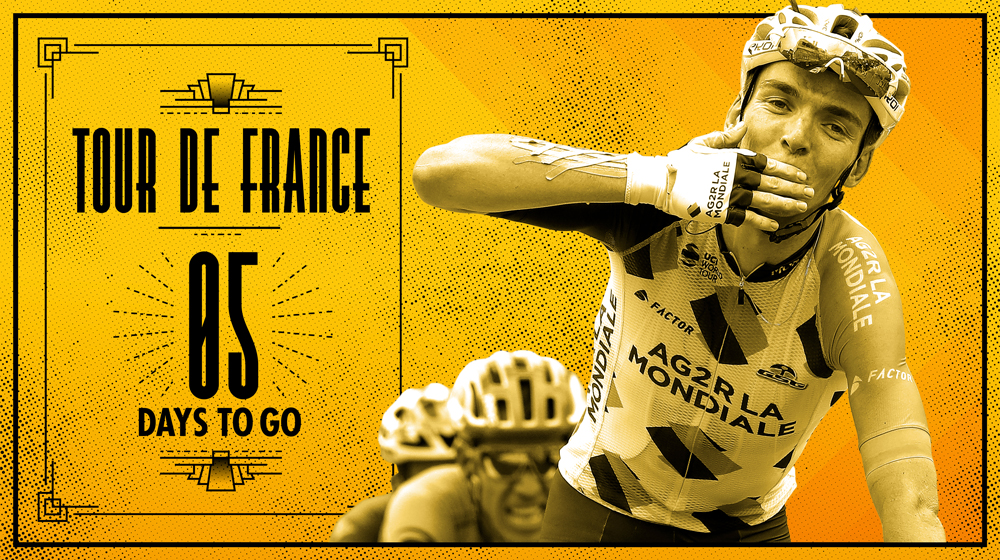
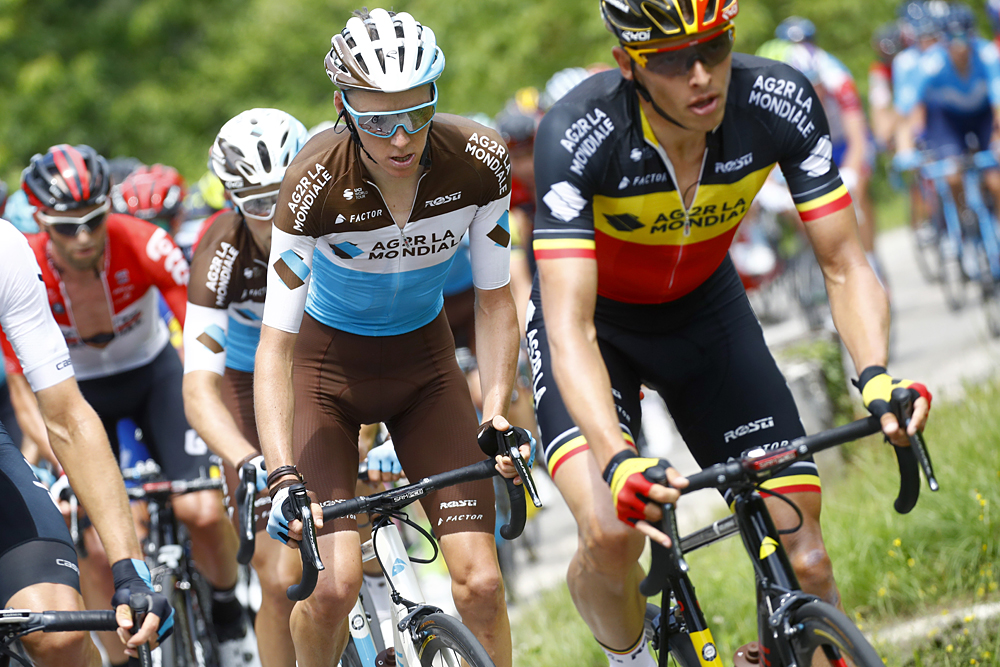
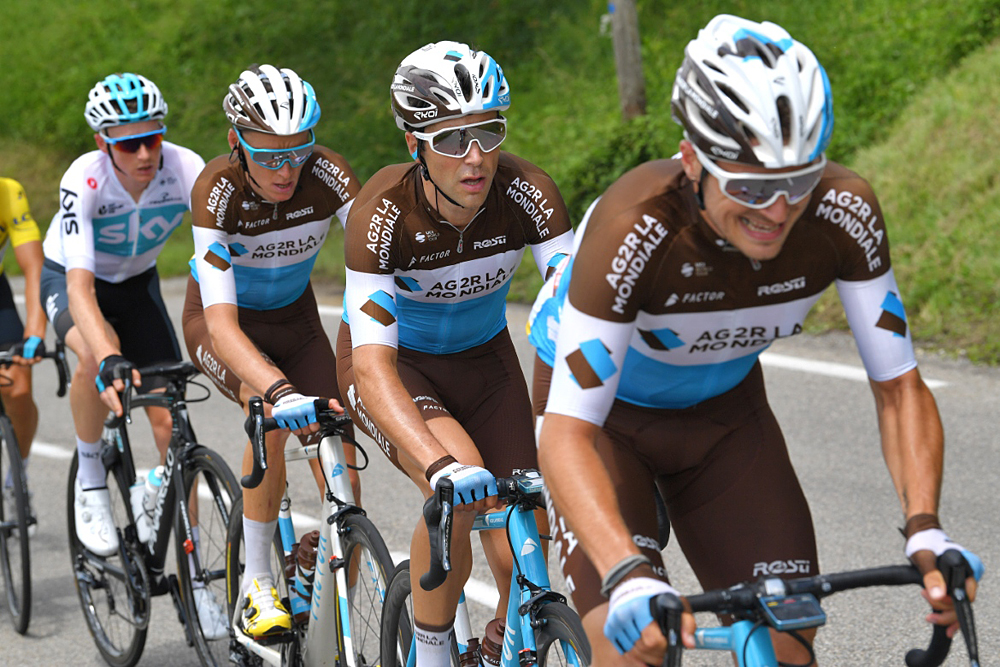
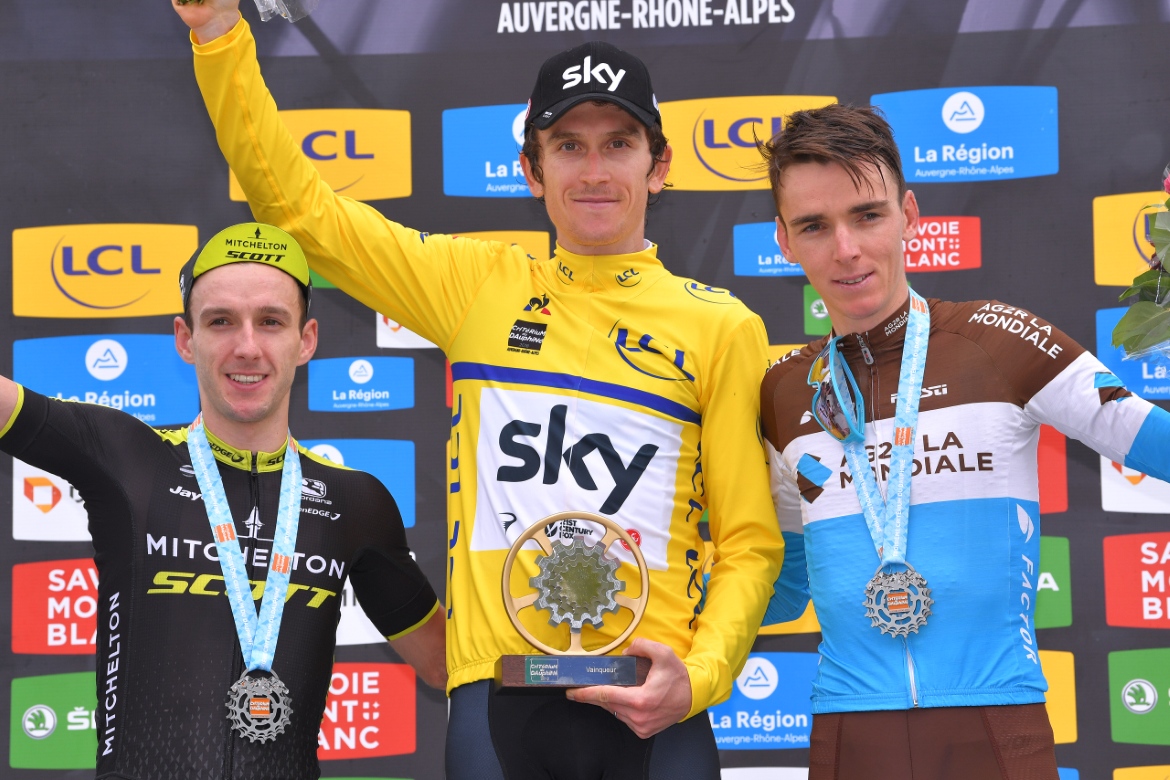
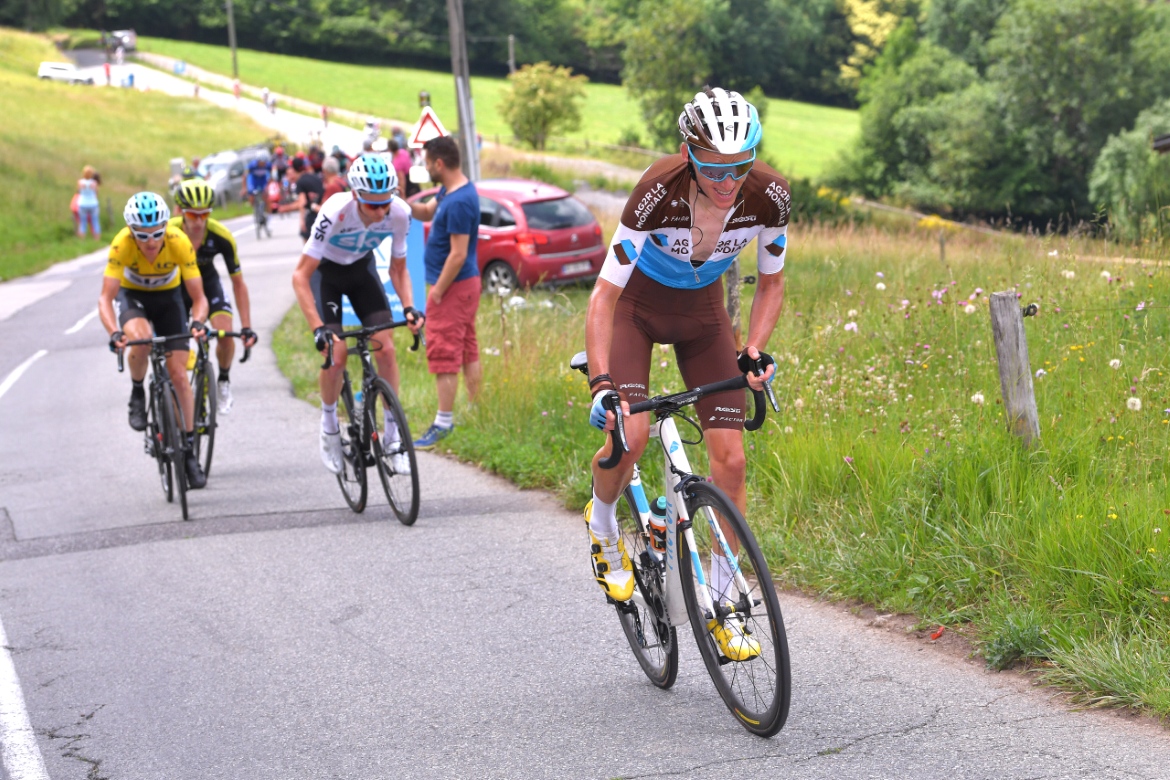
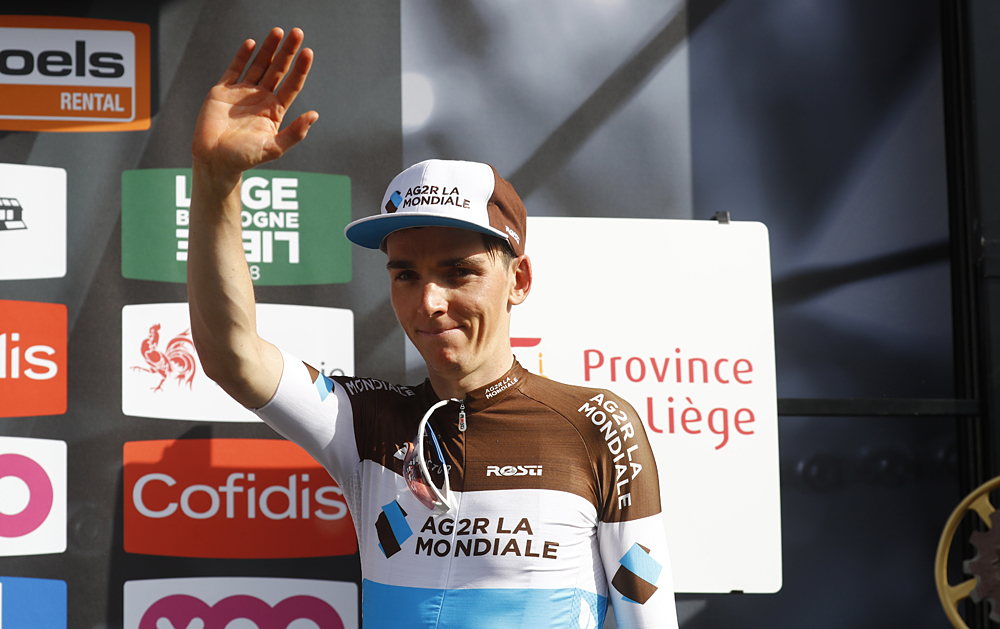
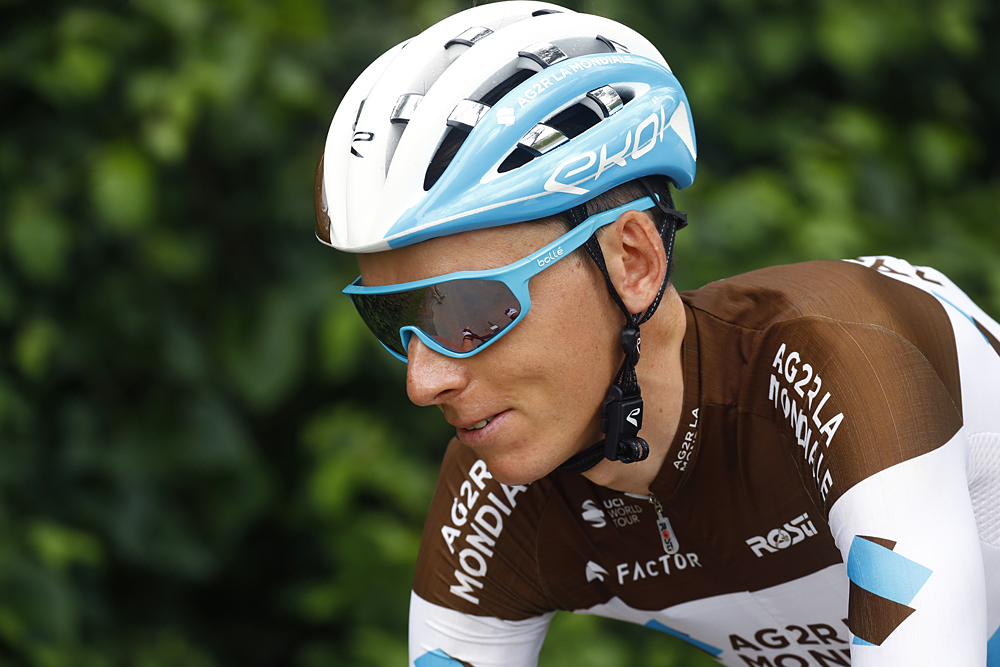
It was one of the images of the 2017 Tour de France, perhaps of the whole season: Romain Bardet slumped against a concrete wall in the bowels of the Stade Vélodrome in Marseille after finishing his ride in the penultimate-day time trial. Just a hundred metres away, outside in the light, Chris Froome is celebrating a fourth yellow jersey.
Bardet training at altitude in Sierra Nevada ahead of Dauphine
Bardet finalises Tour de France preparation at Criterium du Dauphine - News Shorts
Bardet working on time trial weaknesses ahead of Tour de France
Bardet and AG2R surprise with strong Dauphine TTT
Bardet and AG2R shake up the Dauphine but can't shake Thomas
Bardet: There's still some form to gain before the Tour de France
In the darkness, Bardet can barely raise an expression, his glazed eyes fixed on nothing in particular. He is utterly spent – a portrait of emptiness, both physical and emotional.
Bardet left nothing out on the road last year and, the energy having somehow returned, he's back to put himself through it all over again.
The three weeks of the Tour de France must be exhausting for each and every rider, but Bardet carries the extra baggage of being French – or, more precisely, a Frenchman who can win the Tour. That, as if any reminder were required, hasn't happened since Bernard Hinault all the way back in 1985. Bardet is only the third Frenchman – after Jean-Christophe Péraud and Thibaut Pinot – to make the podium this century.
After finishing second in 2016 and third last year, there is now only one step left to stand on. Even if Bardet doesn't necessarily see it like that, France expects.
"I'm lucky to be so well supported, but at the same time it's an enormous amount of pressure, because people expect so much," Bardet tells Cyclingnews in the wake of the Critérium du Dauphiné, where he finished third overall.
Despite the weight on his shoulders, a weight under which Pinot seemed to buckle following his 2014 podium, Bardet seemed so indifferent to it.
Get The Leadout Newsletter
The latest race content, interviews, features, reviews and expert buying guides, direct to your inbox!
"You have to be. You have to be," he says, as if there's no other option.
"I'm used to it now – I've had it since 2013. A lot is expected of me at the Tour de France, and I have to live with that. There are worse things in life."
Indeed, it's easy to lose sight of the fact that the pressure comes from a good place, and, every July, Bardet can channel it into a force for good.
"I get goosebumps when I'm racing and I'm roared on like that by the fans at the side of the road," he says. "It gives me something extra. At the Vuelta my power numbers haven't necessarily been that dissimilar but I haven't had the same impact. There is something about the Tour and the fervour of it that allows me to find another level."
The best that he can be
France as a nation may be fixated with that top step of the podium, but Bardet staunchly refuses to see it as such. He has said in the past that he won't consider it a failure if he never wins the Tour. Not that he isn't ambitions – entirely the opposite, according to those on his AG2R La Mondiale team – but his is a drive to become the best that he can be, a relentless quest to mine every ounce of his potential rather than fall into the trap of measuring himself against results.
"Nothing has changed for this year," he insists. "I have a lot of humility and respect for the Tour de France. I just want to give the best of myself; the result doesn't really matter. The essential thing is to be at peace with yourself, and to do the best race possible."
AG2R manager Vincent Lavenu reaches for a different expression. He describes Bardet as being bien dans ses baskets – literally, good in his trainers, or comfortable in himself. But while Bardet seems adept in deflecting that external pressure, there is no shortage of pressure coming from within.
"He has that psychological capacity to believe in himself, to want more," Lavenu tells Cyclingnews. "A mark of a champion is always wanting more, and Romain is like that. Romain is a champion. He is never satisfied with what he has, he always wants more, and he wants to work harder and harder every week, month, year to get there.
"He's a guy who is always determined – more than anyone else I've seen. A guy who every year takes a step forward. A guy who wants absolutely to achieve his goals, and is ready to work, work, work – always more."
None of the senior figures at AG2R La Mondiale are too proud to admit that if the team has developed at great strides over the past few years then it's because of Bardet's relentless drive. Signing a new three-year deal after his sixth-place finish in the 2014 Tour, he became the figurehead of the team and, perhaps surprisingly for a slightly geeky-looking lad who reads political magazines and quotes philosophers on Twitter, a natural leader.
Four years ago, Bardet first went to train at altitude in Sierra Nevada accompanied only by his father. Now the pre-Tour camp has become a fixture, attended not only by teammates but also coaches, directeurs sportifs, a mechanic, a doctor, and a specialist in altitude training. He works with a micro-nutritionist, which, along with a range of other things, has filtered down through a set-up that has become increasingly scientific. Recruitment is often carried out with Bardet in mind – the recent influx of Classics riders bring in results and WorldTour points at one-day races, but also offer the support Bardet needed away from the mountains.
Taking on Team Sky
One of the most notable ways AG2R have developed under Bardet is the way they ride – and he has demanded as much. In 2016 there was very much a sense that a slice of individual innovation and opportunism allowed him to leap onto the podium, but last year we saw AG2R take the race on in a way we haven't seen before. They split the field ahead of the Mont du Chat on stage 9, where Bardet attacked, and elsewhere provided a change of scenery from the Team Sky jerseys amassed at the head of the peloton. Small things, but they felt significant.
Almost a year on, the collective force of AG2R was one of the themes of the Dauphiné. They imposed themselves on each of the four mountain stages and, although Geraint Thomas proved unshakeable, they did cause Sky some headaches, dropping Michal Kwiatkowski and Gianni Moscon on stage 6.
After his trip to the podium on the final day, Bardet made a point of highlighting the work of his teammates. "We went down with weapons in hand, and with our heads held high," he said.
The battle metaphor seemed particularly apt in the context of the final day, during which Thomas punctured and AG2R rode hard. They claim they'd already been doing so for some 10km, but Thomas was unimpressed. "I'm not one to hold a grudge but I certainly won't forget it," he said pointedly.
Thomas has even suggested that his crash and broken collarbone last year was caused when AG2R 'jumped' Sky at the front of the bunch. Going into the Tour it seems there's little love lost between the two teams, and although there are other strong collectives – not least Movistar and BMC – it could be a rivalry to watch.
"We have a certain 'savoir-faire'. We've never won the Tour de France but despite that we have a certain savoir-faire in the Grand Tours and especially in the Tour de France," says Lavenu.
"We need to use that to narrow the gap we have to Sky. They're the strongest team. We're a little below, but it was clear last year that AG2R tried to take Sky out of their comfort zone. We're going to look to destabilise them even more this year."
There is a fine line to tread, however, between trying to throw Sky off balance and simply doing Sky's job for them. On the final mountain stage last year, they were accused of doing the latter on the Col d'Izoard.
"We mustn't do Sky's job for them, but from time to time it's important to show our leader that the team is present, that it's there, that it's solid. It also sends a message to our rivals," says Lavenu.
"That doesn't mean we should ride no matter where or no matter when, but we have to be ambitious, we have to be confident, to show that the team is strong and that we're capable of doing things."
Take the risk or lose the chance
The team should provide the strongest foundations Bardet has at the Tour, with the likes of Oliver Naesen, Sylvain Dilier, and Tony Gallopin – all signed in the last two years – to play a crucial role in an opening week that contains a team time trial, a Paris-Roubaix-inspired cobbled stage, and no shortage of other pitfalls.
However, when Bardet reaches his natural terrain of the mountains in the second half of the race, you feel that, in order to turn those podium finishes into a yellow jersey, he will have to come up with a moment of individual magic.
"He has to be strong in every department, he has to be confident in his ability, and at a given moment he has dare," says Lavenu.
"He mustn't do whatever, whenever; he has to pick the right moment to act, the moment when he can dare to pull something off."
Despite the assiduous, methodical side to Bardet, it is these moments of spontaneity, instinct, and audacity that have defined his career to date. Indeed, the words 'Take the risk or lose the chance' are now printed on the frame of his bike.
The 27-year-old, who says he is both physically and mentally stronger compared to 12 months ago, still considers himself an 'outsider' at this Tour de France, but he knows that if he adheres to that motto, if he refuses to put down his weapons, then he has a chance.
"I have to take my opportunities," he says. "Sky are very strong. But if you put your heart into it, you never know. Anything can happen in a bike race."
Click here to subscribe to the Cyclingnews podcast.
The 2018 Tour de France starts on July 9 and concludes on July 29 in Paris. Cyclingnews will have complete live coverage from the race, as well as race analysis, blogs, video highlights and podcasts from the team on the ground.

Patrick is a freelance sports writer and editor. He’s an NCTJ-accredited journalist with a bachelor’s degree in modern languages (French and Spanish). Patrick worked full-time at Cyclingnews for eight years between 2015 and 2023, latterly as Deputy Editor.
